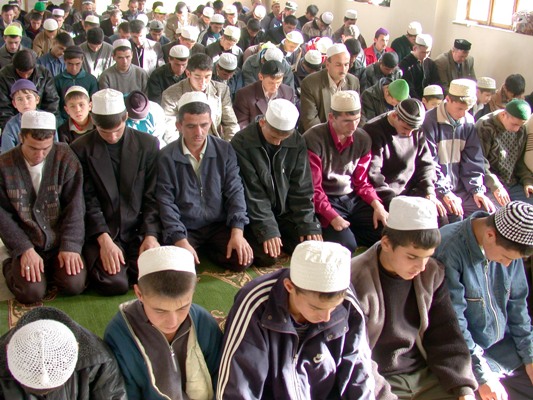DUSHANBE, August 6, 2011, Asia-Plus — The law on holding parents responsible for their children’s action and education took effect in Tajikistan on August 6.
The president signed the law on August 2 with note that the law takes effect after it is published in the state”s official newspaper. The parental responsibility law was published in Saturday’s edition of
Jumhuriyat
, which is an official mouthpiece of the Government of Tajikistan.
We will recall that the lower house (Majlisi Namoyandagon) of the parliament adopted the law on holding parents responsible for their children’s action and education on Jun15 and during parliamentary debate, Education Minister Abdujabbor Rahmonov reminded deputies of the Majlisi Namoyandagon that the draft ban on kids in mosques proposed by Rahmon was published several months ago for public discussion. The Majlisi Milli (Tajikistan’s upper chamber of parliament) seconded the law on July 21
The law does allow children and teenagers who study at state-run religious schools to attend mosques and join religious associations. But other teenagers may pray at mosques only on religious festivals and at funerals.
Many believers in the country are critical of the parental responsibility law that bans children under 18 from worshipping in mosques, churches and other houses of worship.
Some local experts say the main target of the parental responsibility law is the Muslim children that the government wants to ban from going to mosques in an attempt to prevent them from becoming radical Muslims.
“I regret that the president has signed the parental responsibility law,” a prominent Tajik religious leader and former deputy prime minister Hoji Akbar Turajonzoda told Asia-Plus in an interview on August 4. He stressed that the fact that the president signed the law during the holy month of Ramadan adds to the frustration felt by Muslims in the country.
Turajonzoda noted that ordinary people would most like ignore the law and continue allowing their children to pray in mosques. “With support from law enforcement agencies, local authorities and state-run media they will be able to create conditions for observance of the law by a certain category of persons during a certain time,” noted he. “I am sure that with the lapse of time the part of the law that bans children under 18 from worshipping in mosques will be forgotten by all, including the authorities, because it is in contrary not only to God’s laws and principles but also to culture and spirit of Muslims of Tajikistan.”




